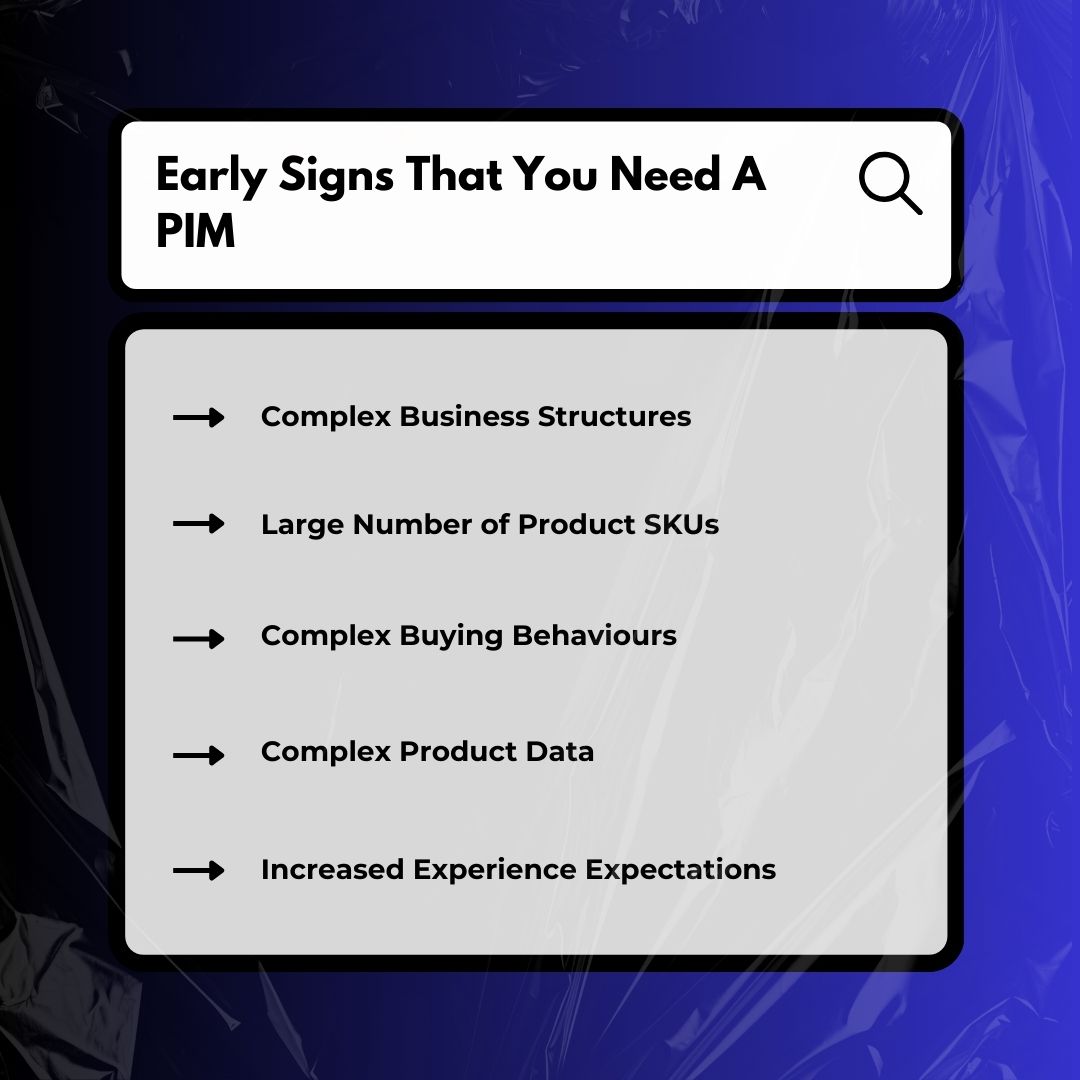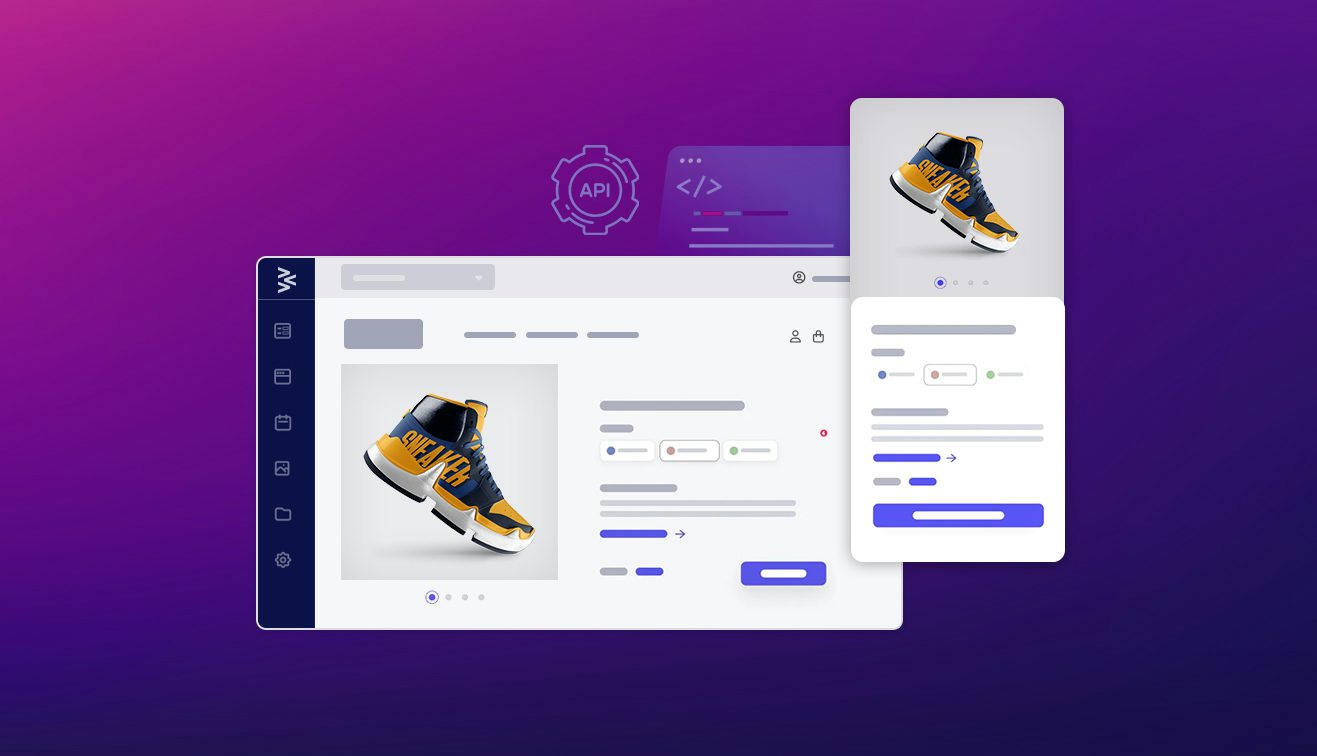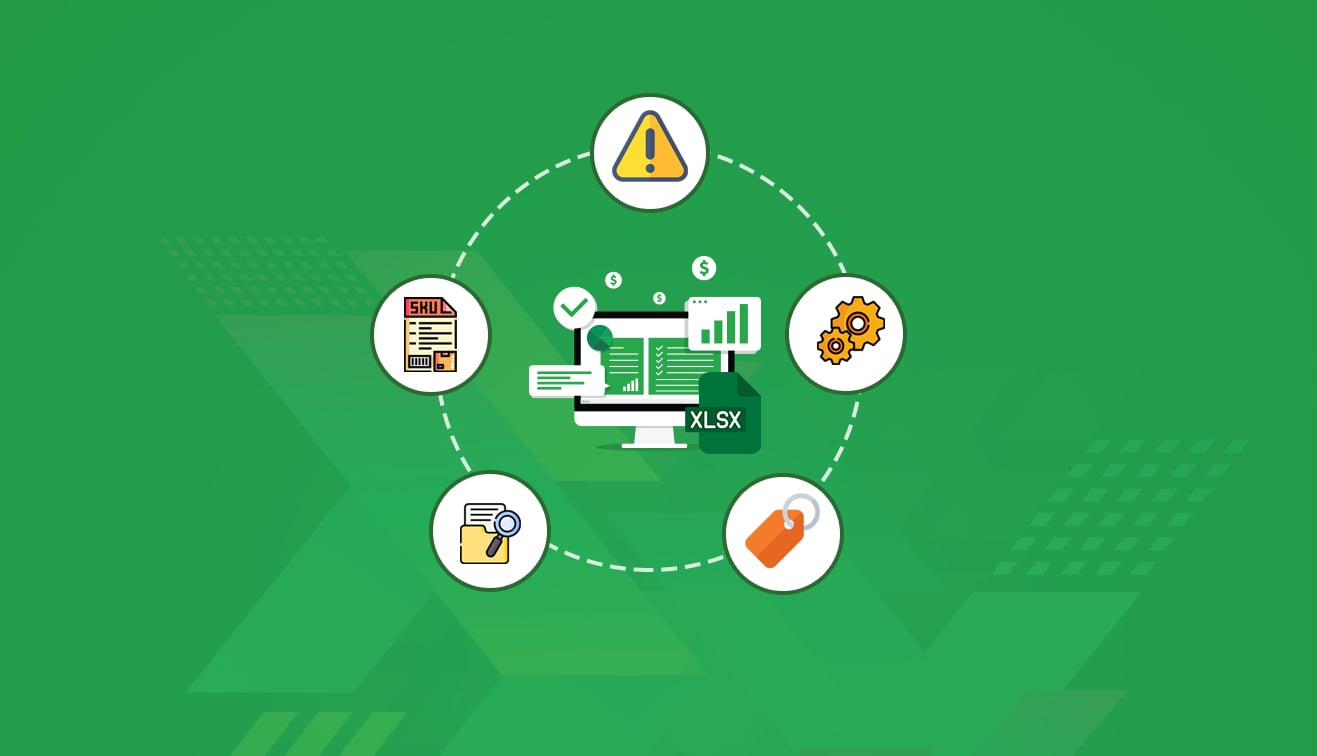In B2B retail, a striking 49% of purchases are now completed online, with commerce and in-person sales contributing equally as top revenue channels. This split underscores the necessity for B2B sellers to balance their sales and marketing strategies effectively.
Today's B2B buyers prioritise understanding the “why” and “where” of their purchases. A staggering 33% of buyers initiate their research on a marketplace, followed by 26% on search engines and 23% on manufacturer or distributor websites. This highlights the critical need for accurate, consistent, and complete product information across all platforms and channels.
However, challenges abound: 68% of buyers hesitate to make purchases from commerce sites riddled with errors, often due to inadequate delivery information, pricing discrepancies, and incomplete product details. This situation underscores the necessity for a centralised data management system to ensure that product information remains accurate and up-to-date across every sales channel. With 87% of B2B buyers relying heavily on online product information to choose vendors, discrepancies can lead to lost sales and eroded trust.
At the core of addressing these challenges lies PIM software, an advanced solution that enables businesses to maintain accurate, accessible, and actionable product data—whether on shelves, in showrooms, or across online catalogues.
This article will delve into why effective product data management is essential for B2B, exploring the key functions of PIM and how they support the unique needs of B2B companies, from operational efficiency to customer engagement and regulatory compliance.
Why B2B commerce needs product information management?
Product Information Management (PIM) software is a centralised solution designed to manage all aspects of product data, ensuring that accurate, consistent, and up-to-date information is available across all channels. A PIM system consolidates product information from various sources, including ERP systems, spreadsheets, and suppliers, into a single, easily accessible platform. This centralised repository enables businesses to efficiently manage and enrich product data—such as descriptions, specifications, images, and pricing—ensuring that all stakeholders and systems utilise the same reliable information.
Give this a read: Unified eCommerce Operations: Integrated PIM, OMS & eCommerce
In B2B commerce, where products often possess complex attributes and large catalogues, the role of PIM is especially critical. It not only organises and maintains product data but also enhances overall data quality by eliminating duplicates and inconsistencies. PIM software allows businesses to manage multiple versions of product information, catering to different markets, languages, and channels, making it an indispensable tool for companies operating globally.
Enabling omnichannel product experiences
B2B customers increasingly interact with merchants through various channels, including B2B trade portals, distributors, marketplaces, and print catalogues. As Andy Hoar, former principal analyst of B2B commerce at Forrester, stated, “B2B companies stand to gain from migrating customers into an omnichannel environment, where they can interact with sellers and receive consistent service across selling channels.” To thrive in this omnichannel landscape, B2B sellers must make their products and services accessible whenever and wherever customers are ready to buy.
Using a PIM solution allows businesses to organise and manage product information effectively, enabling marketers to customise catalogues by channel and locale. This leads to a consistent experience across all touchpoints, enhancing the overall customer journey. With PIM serving as a "single source of multiple truths," businesses can significantly improve the omnichannel customer experience.
Supporting cross-border commerce growth
B2B merchants need sophisticated PIM solutions to create and customise product data specific to individual international markets. PIM enables B2B merchants to offer localised versions of their product information for local and overseas buyers. A robust PIM system capable of handling multilingual product descriptions is crucial. Selling internationally requires more than just translating websites; it involves understanding local vernaculars, sizing differences, cultural nuances, regulatory requirements, and other regional factors that influence the customer experience—all of which can be managed through a PIM solution.
Onboarding product data
According to Episerver, 98% of shoppers have been discouraged from completing a purchase due to incomplete or incorrect product information. Ensuring that all necessary information is gathered can be challenging, especially when suppliers and manufacturers provide information in incompatible formats. A PIM can streamline the product onboarding process by allowing suppliers to directly upload their product information, which internal teams can then enrich quickly and easily.
A robust PIM solution equips businesses with the tools needed to onboard product information from various sources, significantly accelerating their time-to-market.
Streamlining catalogue management
Traditionally, product information has been scattered across different departments, stored in multiple formats, and accessed only by select employees. PIM allows companies to consolidate and maintain consistent data—from product specifications to model variations—improving the productivity of marketing and commerce teams. This centralised resource becomes increasingly valuable as companies scale and expand their operations.
PIM streamlines catalogue management with features like mass editing and validation workflows, enhancing team productivity and supporting data governance. Automation in workflow and business rule processing allows marketing and commerce teams to focus on crafting compelling product descriptions, laying the foundation for an exceptional customer experience.
How PIM enhances key B2B operations?
PIM systems are designed to serve as centralised hubs for collecting, managing, and enriching product data, making them critical in areas that impact a B2B company’s operations, efficiency, and customer satisfaction.
Let’s look at the primary operational functions a PIM supports for B2B businesses.
a. Centralised data management for greater operational efficiency
A PIM system enables centralised storage and management of product data, eliminating the need for siloed databases and reducing duplicate work across departments. This is particularly important for B2B companies with large catalogues and numerous teams handling product data, such as sales, marketing, and compliance.
- Master data repository: PIM serves as a master repository, ensuring all stakeholders work with the same accurate data set. From technical specifications to marketing descriptions, all details are stored in a single source of truth.
- Automated data synchronisation: Any update made within the PIM system can be automatically synchronised across all connected channels and systems (e.g., ERP, CMS, commerce, OMS), reducing manual updates and ensuring consistency across platforms.
- Reduced manual errors: Centralised, automated data management means fewer manual inputs, reducing the risk of errors that lead to customer dissatisfaction, order delays, or regulatory non-compliance.
b. Enriching product data for sales enablement and improved customer experience
In B2B sales, detailed product information is crucial for driving purchasing decisions. PIM systems enhance product data with relevant, context-rich information that enables sales teams and digital platforms to engage customers more effectively.
- Comprehensive product descriptions: PIM allows businesses to create detailed product descriptions, including specifications, applications, compliance details, and high-quality images, which help customers make informed decisions.
- Localised data for global operations: For B2B companies operating internationally, PIM enables the localisation of product data. It can support translations, regional pricing, and regulatory compliance to adapt products to different markets.
- Flexible catalogue management: PIM allows sales teams to quickly adapt catalogues for specific customer needs. For example, it’s easy to create customised catalogues for different customer segments or regions, streamlining the B2B buying experience.
c. Real-time data access for accurate and efficient order processing
Product data accuracy is critical for efficient order processing in B2B, where transactions are often complex and high-volume. PIM ensures data reliability, helping to avoid order errors and delays that can strain customer relationships.
- Inventory & availability management: By integrating with inventory and ERP systems, PIM systems provide real-time product availability updates, reducing the likelihood of backorders or stockouts.
- Dynamic pricing updates: For B2B products with variable pricing based on factors like order volume or market demand, PIM systems allow businesses to update pricing in real-time across all channels, ensuring customers receive accurate information at every touchpoint.
- Streamlined quote-to-order process: PIM integrates with sales and quoting tools, enabling sales reps to access updated, accurate product information instantly. This supports accurate quotes and faster order turnaround, enhancing the customer experience.
d. Supporting compliance and regulatory requirements
In B2B, particularly in industries like manufacturing, healthcare, and chemicals, regulatory compliance is critical. A PIM system provides the necessary framework to manage and track compliance data efficiently.
- Regulatory data management: PIM enables the inclusion of regulatory data such as safety standards, certifications, and compliance notes for each product. It supports documentation storage and easy access to compliance data during audits.
- Audit trails & data governance: PIM systems often feature audit trails, which track changes to product data, aiding in data governance. This feature is essential for maintaining compliance in regulated industries where data traceability is required.
- Automated updates & alerts: Many PIM systems can set up alerts for updates in regulatory requirements, ensuring that product data remains compliant with industry standards without needing manual checks.
e. Enhanced multichannel distribution and marketing
For B2B organisations leveraging multiple sales channels—commerce, digital marketplaces, and B2B portals—a PIM system ensures data consistency and accuracy across all platforms.
- Cross-channel consistency: PIM ensures product information consistency across all sales and marketing channels. Accurate, synchronised data enables a unified experience for customers, regardless of the platform they choose to engage with.
- Seamless integration with commerce & digital channels: With APIs and integration capabilities, PIM can synchronise data across various commerce platforms, online marketplaces, and digital catalogues. This allows B2B companies to respond rapidly to new digital demands and customer needs without lengthy data updates.
- SEO-optimised product data: Many PIM systems also enable SEO optimisation of product descriptions, ensuring that product listings rank higher on search engines, driving greater visibility and traffic to digital sales channels.
Resource: Making Product Information Management (PIM) Implementation Easy And Efficient
Conclusion
In a B2B landscape where data accuracy, operational efficiency, and customer satisfaction are paramount, Product Information Management (PIM) systems have become essential. By centralising product data, enhancing data accuracy, and supporting compliance and multichannel distribution, PIM enables B2B organisations to streamline operations and drive business growth. As digital transformation continues to reshape B2B commerce, investing in a robust PIM solution is no longer optional but critical for any company looking to remain competitive and meet the evolving expectations of B2B buyers.













































































.jpg?w=3840&q=75)


.png?w=3840&q=75)











.jpg?w=3840&q=75)

